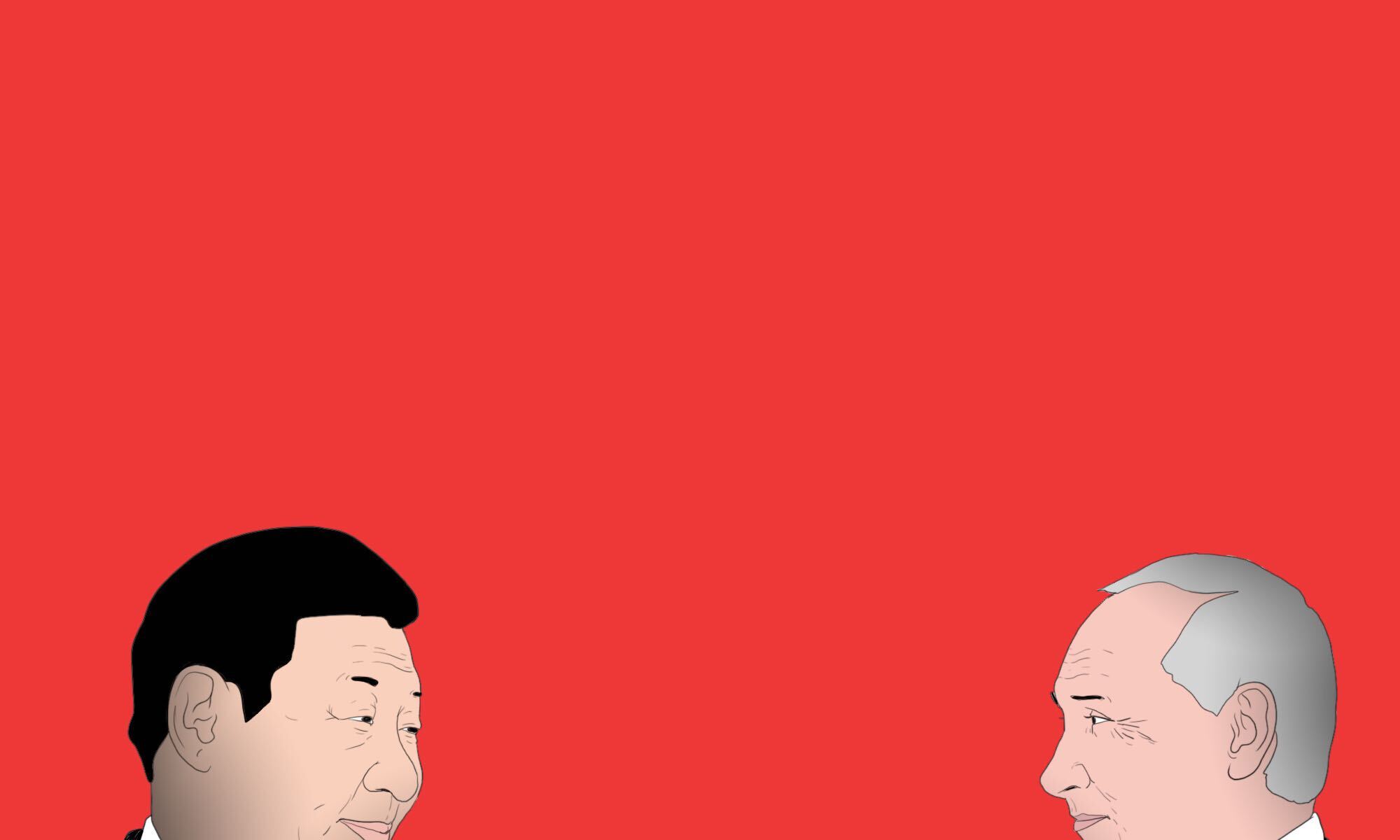The Russia-China joint statement: what has changed since last year
The war in Ukraine, criticism of World Trade Organization sanctions, support for Africa, and words such as “dialogue,” “peace,” and “cooperation”: Let’s take a closer look at the recent China-Russia joint statement.

On Tuesday, Vladimir Putin and Xí Jìnpíng 习近平 signed two documents on the occasion of the General Secretary’s trip to Moscow, the first time since the beginning of Russia’s war in Ukraine that either Xi or Putin visited one another’s home countries. Given the political circumstances, the joint statement on “Deepening the Comprehensive Strategic Partnership of Coordination” has received ample media attention.
The world has undergone significant changes since February 2022, when Xi and Putin issued their last joint statement. Likely due to Russia’s war in Ukraine, the new statement stresses that “Sino-Russian relations are not a Cold-War style military-political alliance.” However, in line with last year’s statement, it goes on to affirm that the partnership “transcends this model of state relations.” While international media highlighted last year’s declarations of “no-limits cooperation,” attention this year is focussed on the joint assertion that relations are at their “highest level in history.”
The most interesting parts of this year’s joint statement, however, lie hidden beneath affirmations of mutual loyalty. Since last year, China and Russia have stepped up their rebuke of the West, deriding its alleged attempts “to replace the recognized principles and norms of international law with a ‘rules-based order.’” On the war in Ukraine, the countries reiterated that “the legitimate security concerns of all countries must be respected and the formation of confrontation between camps must be avoided” — a clear ascription of blame for the war to NATO expansion. Interestingly, they used the same rhetoric regarding North Korea, writing that the U.S. must respond to the DPRK’s legitimate and reasonable concerns.
China has also used the joint statement to defend its continued closeness to Russia: “Russia needs a prosperous and stable China,” the statement says, “and China needs a strong and successful Russia.” The sentiment echoes Western analyses that China has an economic interest in its peace-making initiative. The PRC government also seems to feel a palpable sympathy for Russia as a fellow regional power: “There are more and more regional powers that are strong and determined to defend their legitimate rights and interests,” states the document.
On a more practical level, this year’s joint statement has outlined several fields of cooperation that expand beyond what China and Russia have signaled in previous years. The document places more emphasis on strengthening trade and economic cooperation, stressing energy as a particular point of converging interest. The planned China-Mongolia-Russia natural gas pipeline project receives special mention as Russian energy is boycotted in the West. Furthermore, amid a global food crisis exacerbated by Russia’s invasion, the two countries pledged to “increase the diversity and supply of agricultural products and food exports to each other.” Other fields of strengthened cooperation are to include civil aviation manufacturing, the automobile industry, shipbuilding, and metallurgy.
Beyond the economy, the document outlines several other areas in which Russian and Chinese cooperation is to be strengthened. A new addition to the two countries’ annual joint declarations is the promotion of “exchanges between [their] political parties.” In a step up from last year’s rhetoric, the two sides agreed to regularly organize joint air and sea exercises, and to “further deepen military mutual trust.” They plan further cooperation in the “protection of overseas citizens, projects, and institutions,” a promise with unclear implications for Russia’s current conflict.
Concerningly for pro-democracy voices, the two sides also agreed to hold annual high-level meetings to “strengthen law enforcement cooperation” in multiple fields. This cooperation is not restricted to China and Russia. The two countries announced they were willing to “support Central Asian countries in safeguarding their national sovereignty, guarantee national development, and oppose the promotion of ‘color revolutions’ and interference in regional affairs by external forces.” Given Russia’s recent involvement in forcibly quelling Kazakhstan’s pro-democracy protests, China’s implied support may have a chilling effect. Indeed, the joint statement also signals China’s willingness to cooperate with the Russian-led Collective Security Treaty Organization.
Another newly signaled foreign policy direction is Russian and Chinese cooperation in Africa. The two sides, the statement writes, “will strengthen communication and coordination on African affairs” and “support African countries’ efforts to independently resolve African issues.” They also “support the African Union’s accession to the G20,” an attempt to keep pace with Biden, who announced the U.S.’s support for the AU’s G20 accession last year.
Numerically speaking, the document shows unsurprising changes from one year to the next. The word “democracy” (民主 mínzhǔ) has clearly left the spotlight, falling from 22 mentions to five, as attention has shifted to more material Western actions than its critique of Russia’s and China’s political systems. In contrast, the words dialogue (对话 duìhuà), peace (和平 hépíng), and cooperation (合作 hézuò) have gained in traction, respectively rising from seven to 12, 16 to 25, and 52 to 84 mentions. Interestingly, the World Trade Organization was invoked five times this year (and not a single time in 2022), as the two countries criticize the West for sanctioning Russia.
In numerous ways, however, the joint statement simply repeated priorities voiced in previous documents. Russia and China repeated they would support each other’s core interests (including, in Russia’s case, support for the one-China principle) and continued to stress the promotion of multipolarity and the “democratization of international relations.” They repeated that no country has a monopoly over the meaning of democracy, criticized foreign involvement in domestic politics, and espoused nuclear non-proliferation. Interestingly, Russia and China concretized their traditional opposition to terrorism by calling for an independent investigation of the Nord Stream pipeline bombing.






